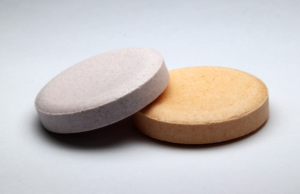Smart drugs, or its scientific name, nootropics, are the latest drug use trends among young adults in the United States. They may be natural or artificial substances intended to improve healthy people’s mental performance, but at what cost? Let’s take a look at the guide below.
Overview of Nootropics
Originally, nootropics was chemicals that met certain criteria. The term is now used to refer to any artificial or natural substance that positively affects cognitive abilities. Nootropics can be dietary supplements, artificial chemicals, or prescription drugs. These are the varieties of nootropics. Organic nootropics include natural ingredients such as herbs and plant extracts that can improve cognitive performance and even prevent cognitive decline. These substances are not regulated by the FDA and therefore cannot make certain claims. The next one is synthetic nootropics which are pharmaceutical agents that affect psychological function. This type of nootropics needs a prescription and should be under medical supervision.
Nootropics’ Target Consumers
Without realizing it, people of all ages can use nootropics. But nowadays, people of generation Z or with high income would be the users of nootropics. These materials are desirable for students preparing for exams, young people doing high school assignments, and anyone looking for a boost in creativity and productivity.
Prescription Nootropics vs. Over-the-Counter Nootropics
 There are some prescription nootropics that are drugs that have stimulant effects. Over-the-counter nootropics can improve brain power and attention. They can be creatine and caffeine, for example. They don’t cure diseases, but they can have a beneficial effect on thinking and memory. Some FDA-approved nootropics help treat diseases. These are usually various stimulants, such as amphetamines, like ADHD and dementia. Then there is Adderall, which is used to treat ADHD.
There are some prescription nootropics that are drugs that have stimulant effects. Over-the-counter nootropics can improve brain power and attention. They can be creatine and caffeine, for example. They don’t cure diseases, but they can have a beneficial effect on thinking and memory. Some FDA-approved nootropics help treat diseases. These are usually various stimulants, such as amphetamines, like ADHD and dementia. Then there is Adderall, which is used to treat ADHD.
All of these drugs can be very effective in treating these conditions. All of these nootropics carry the risk of unwanted side effects and interactions, so they should only be taken under a doctor’s supervision. The most common side effects of prescription nootropics are the risk of increased blood pressure, a faster-than-normal heart rate, insomnia, visual disturbances, and addiction. Additionally, research indicates that individuals who abuse prescription nootropics to “mind hack” are more likely to engage in impulsive behaviors, such as acting violently and engaging in risky sexual practices.
Some nootropics are artificial or natural supplements designed to improve mental performance. Some of them do not require a prescription and are part of a variety of dietary supplements. However, these nootropics have very few studies behind them to back up all of their claims. Some of these supplements have FDA approval to help with some promises, but not all. There is a heated debate about whether these supplements are effective or improve cognitive function.
Summary
Currently, some small studies suggest that nootropics can affect the brain. But there is very little evidence from large controlled studies that these supplements work and are safe to use. Experts can’t say for sure whether over-the-counter nootropics improve thinking or brain function using only accessible information. Nor can they say they are safe to use. One report on cognitive enhancers found that there is little or no evidence to suggest that they are safe and potent for healthy individuals. Omega-3 fatty acids can support overall well-being and benefit the mind. Caffeine Has been shown to improve short-term mental focus, so some signs are helpful.

